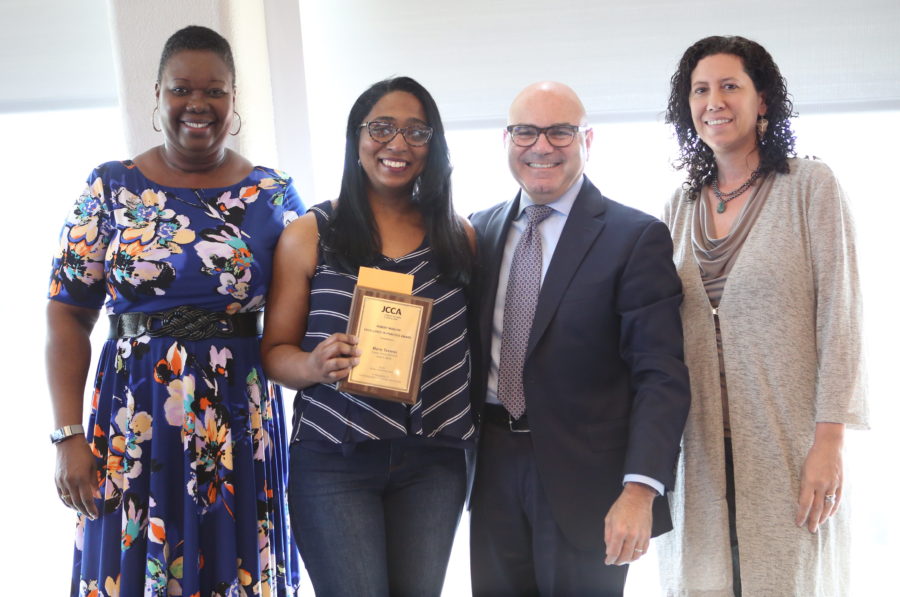 Every year, JCCA’s Robert Maslow Awards for Excellence in Practice recognize employees who have gone above and beyond their duties in support of JCCA’s mission. For a glimpse into the passion and dedication that power JCCA’s life-saving work, read our interview series profiling a few of the 2018 Maslow Winners.
Every year, JCCA’s Robert Maslow Awards for Excellence in Practice recognize employees who have gone above and beyond their duties in support of JCCA’s mission. For a glimpse into the passion and dedication that power JCCA’s life-saving work, read our interview series profiling a few of the 2018 Maslow Winners.
MARIA TAVERAS
Intake Coordinator, Foster Home Services
JCCA: How many intakes do you process?
MT: We receive a list from ACS every day of the children who need to be placed. On average, I place around 5 to 10 children a week, although this week I placed 14.
JCCA: What are some of the major issues you face in placing children with foster parents?
MT: The biggest struggle by far is identifying appropriate foster parents with the skills required to care for children with behavioral concerns or severe medical conditions. We must consider if there are other children, and whether there are any dynamics in the home that might trigger problems for the child. We work with foster parents to make sure that they understand each child’s particular needs. For example, if a child has PTSD, my job is to help the foster parent understand the diagnosis, get a sense of what behaviors to expect, and how to respond appropriately.
JCCA: What are the most effective strategies to manage all this?
MT: I would say that building relationships with foster parents is critical. A close relationship helps foster parents trust us and know that JCCA is here to support them. They all have access to my agency cell number. I tell them to call me anytime, and they do! When I receive a referral, I can immediately send a text message to several foster parents and quickly find a home for a child.
I also value my partnership with the ACS Office of Placement. When there are barriers to a child being placed, they ask, “How can we support you in making a placement?” For example, we needed to place two high-needs children together. The foster mother, who had worked with JCCA for many years, only had one bed. I called ACS and asked if they would be able to help purchase a bed. They said yes immediately. That assistance is essential to successful placements.
JCCA: What do you find most satisfying about your work? Most challenging?
MT: The toughest part of my job is having to learn about the many difficult experiences of these children, the terrible things they go through.
The most satisfying aspect is identifying and certifying foster parents who rise to the occasion and do really great work with children and their families. It is fulfilling to know that children are going into foster homes that will meet their needs and take good care of them. I really care about the children and work hard to make sure they will be in a place where they’ll be protected and cared for.
JCCA: Any recent stories you can share?
MT: One of my proudest achievements was with a large sibling group that ACS had spent more than six months trying to place. When I received the referral, my goal was for the children to remain as close as possible. I was very concerned that they would become anxious if they were separated. I found two foster parents who were friends and also lived in the same building. One was able to care for the younger children and the other took in the older siblings. They lived near the children’s school and were able to support each other with school drop-offs and pickups, as well as help with the cooking and care in general. It’s wonderful to see the possibilities we create through our creativity, hard work, and strong relationships with foster parents.
